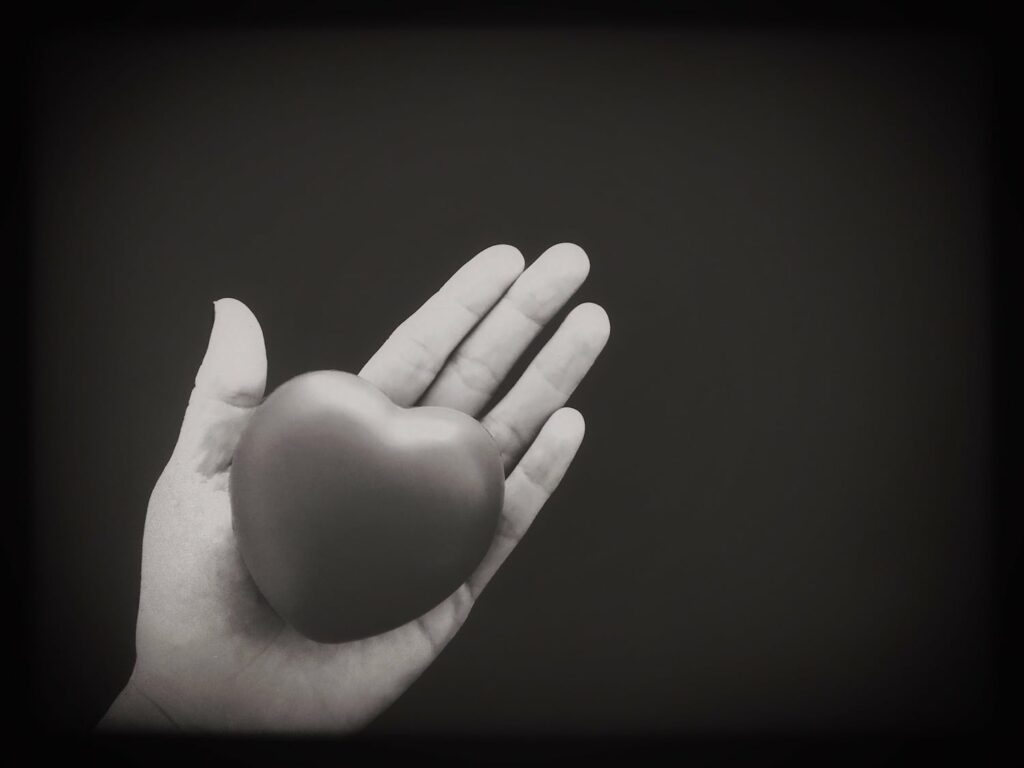
Nine tips for handling grief after the loss of your loved one
Published: March 7, 2023 | Updated: April 27, 2023
There’s so much we experience in our lives that helps guide the process of choosing a final resting place and design style. Many big and small moments shape who we are, like graduation, a first job, falling in love, getting married, having children, seeing children grow into adulthood, and hobbies and passions. When we reflect on our lives, these memories and milestones may come to mind first.
At Dio+Co., we care about our clients and pride ourselves in helping them leave behind a symbol of their legacy and that of their entire family. We don’t take our commitment to our families lightly. However, we are intentional when we say we are here for you, so we want to share nine tips you can use to help you handle grief after a loved one’s death.

Work Through the Stages of Grief
Many professionals in the mental health field share the five stages of grief. These stages include denial, anger, bargaining, depression, and acceptance and can occur in no particular order. It is also important to note that not everyone will experience all of these, or you may experience a different stage than what is listed here.
Our goal here is to explain the different stages and the emotions and feelings that tend to pair with them in the hopes that you can identify your step and be better prepared to cope with your loss. Our response to each stage can happen day by day or minute by minute. Certain things can trigger our emotions, the healing process, or even mental illness. We also acknowledge that others may feel more than five stages of grief, and that’s ok.
There’s no “typical” response to grief as it is as unique as you are.
Denial
Naturally, individuals may feel denial when grief first begins. However, remember, not everyone responds to grief the same, and that’s ok. If you find yourself in the denial stage, you may be experiencing overwhelming feelings, shock, numbness, uncertainty, living day-to-day, and in a state of simply “surviving.” Denial helps your body and mind process only what you can handle at that particular time, and there is grace in that.
Once you begin to work through the denial stage, your body and mind automatically start the process of healing. But, unfortunately, this also means that the feelings, emotions, and thoughts your body was denying in the beginning will ultimately surface, which can lead to the next stage, anger.
Anger
Let us start by saying that anger is a completely normal and usual response to grief. If you are feeling angry, you are not alone. Anger is your body’s natural response to pain, and it’s ok to let yourself feel those intense emotions. In addition, anger allows you to feel a little more in control and less overwhelmed by emotional illness and shock.
Bargaining
The third stage of grief is bargaining. This is when we ask ourselves those agonizing questions like “If only…” or “What if…” We wish we could go back in time and do things differently. Guilt can be a strong emotion felt during the bargaining stage. If you are grieving a major loss, you may find yourself bargaining with yourself, other people, or the pain itself. All three are normal responses to losing a loved one.
Depression
Depression is another stage in the grief process. In the bargaining stage, we look to the past, whereas depression forces us to be present in the now. We experience feelings of emptiness and intense grief in this stage. If you notice yourself withdrawing from your other family members and friends, you are likely in the depression stage.
Depression is a normal response to death and part of dealing with the grief-healing process. However, if you notice that depression is consuming you daily for an extended period, seek help from a mental health professional. They can offer more extensive coping mechanisms, healing suggestions, and grief guidance.
Acceptance
The final stage of grief is acceptance; however, this does not mean that everything is all right. After the death of a child or a significant loved one, you may never feel like everything is back to normal or “all right.” Acceptance offers you a new different normal with the grace and permission that it’s ok to live again and enjoy your life.

Take Care of Your Mental Health
Death and all that comes with it can induce trauma. Burying those feelings instead of working through them can be detrimental to your mental state. We empathize that the grieving process is emotionally draining, but it is necessary to regain your sense of peace. Allow yourself to grieve and work through the stages. Speak to a mental health counselor specializing in death and trauma to get professional help as you work through your feelings. Listen to your body and stay self-aware of what it’s trying to tell you.
Use Coping Strategies
Using coping strategies to help you with your grief is an excellent way to feel less overwhelmed. It’s not a failsafe but can sometimes give you pockets of peace and comfort as you work through your most painful emotions and feelings.
Make Plans
For some of us, staying active is a good way to keep our brain from only focusing on our loss. This is not necessarily “avoidance” but it is an intentional way to reframe our thinking and protect our emotional well-being. Make plans with friends and family members. Do something that makes your heart happy. Or, do something you enjoyed doing with your loved one who passed, as that can spark wonderful memories and joy.
Humor
Humor may be the best medicine for sadness. Retelling funny memories, sharing amusing stories, and just laughing can benefit the soul. This doesn’t mean you aren’t sad; it’s just another healthy coping outlet that helps you manage the season of life for which you’re living.
Spirituality
Relying on your spirituality and faith can be of great comfort during the grieving process. Surround yourself with your faith family during this difficult time. Seek refuge from a pastor, priest, or mentor. Praying can also provide solace and relief during this difficult time.
Stay Active
If you are a physically active person, maintain those exercises, routines, walks, runs, etc. Exercising will help raise your endorphins, spike your energy, and provide a physical outlet. It might even help you sleep better at night. Whether you like exercising alone or with a friend, releasing emotions in a physically active way can be an immense and welcoming outlet. If you’re new to exercising, that’s ok. For example, walking is a perfect way to stay active and release pent-up pain being stored in your body.
Start to Heal
Eventually, you will start to heal. You will adjust to your new routine and find hope and meaningfulness in life. Like grief, there are many stages of healing that you may experience, and those emotions and feelings can present differently minute by minute and day by day. Support groups, grief-sharing groups, counselors, pastors, friends, and family can provide ways to heal and move forward. Don’t be afraid to ask for help in this process.
Plan Ahead
Planning ahead allows your loved one to provide their hopes and wishes for their final resting place. It can also relieve the stress on your family of making a hard but important decision at an emotionally demanding time.
We know that visiting a cemetery is a time for families to reflect on their enduring love for a deceased family member. Dio + Co. cares and listens to how you choose to memorialize your loved one’s legacy. We pay attention to the details. We design memorials, mausoleums, and monuments that reflect love, respect, achievement, religious concepts, and most importantly, we completely customize our luxury monuments toward your precise desires.
Contact Us To Get Started
We hope you found our nine tips for handling grief after the loss of a loved one helpful and comforting. We understand that grief is a profound experience and we want you to know that we are here for you when you are ready to talk.
Share This Article:
About Dio + Co.
Learn why we've been so successful since 1934.
Your Legacy, In Stone
Contact us for a free quote or to get your questions answered. We ship nationwide!
